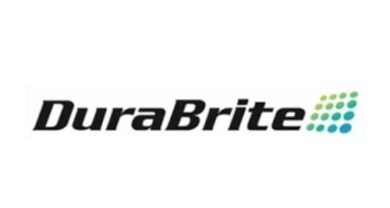Ballast water ruling could hurt recreational boating
WASHINGTON – A court ruling seeking to end the growing problem of invasive species entering the nation’s waters through the ballast water carried aboard global commerce ships could impact recreational boaters as well, the National Marine Manufacturers Association reported in a story today.
“The court’s decision means that, if left unfixed by the Congress, the EPA and the fifty-states have to figure out how to issue a special National Pollutant Discharge Elimination Systems permit for each and every recreational boat in the country that discharges everything from engine cooling water to deck runoff,” said Monita Fontaine, vice president and senior counsel of Government Relations for the NMMA.
Cargo ships use ballast water to compensate for weight changes as they load and unload cargo, and then pump out the water as needed. But this practice, coupled with the increase in global commerce, mean that more than 10,000 species a day are transported around the world in ballast water.
According to Fontaine, a recent federal district court ruling in the case of Northwest Environmental Advocates, et. al. v. U.S. Environmental Protection Agency, et. al. that dealt with the problem of foreign and exotic invasive species being introduced into U.S. waters by ballast water from global commercial shipping points has exposed a serious unknown flaw in the law.
The court decided that a key Environmental Protection Agency regulation in place since 1973 which exempted recreational boats from a permitting requirement for large vessels such as cargo ships and cruise liners was not authorized by the Clean Water Act.
The EPA issued the exemption regulation because it recognized that it would be unwieldy and unnecessary for either the agency or the states to issue permits for each and every boat. The agency did not realize the rulemaking may have technically gone beyond the scope of the Act, according to the press release.
“Conflating bilge water or deck runoff on a 23-foot recreational day boat with the mega-ton ballast water tanks on a supertanker or cruise ship would be absurd in the extreme,” Fontaine said. “This is why the EPA crafted the exemption for recreational boats in the first place, and why the EPA wants to keep the current system which exempts recreational boaters today.”
This does not imply that boats are polluting the waterways; in fact, boat manufacturers already comply with stringent state and federal emissions requirements, making a modern boat the cleanest vessel on the water.
“Clean water is the foundation for an enjoyable boating experience, and boaters are naturally motivated to preserve our waterways,” said Thom Dammrich, NMMA president. “We have supported past efforts to stop the spread of invasive species from taking over and destroying our waters.”
However, the NMMA is mindful that, if immediate action is not taken by Congress to clearly authorize and make permanent the exemption for recreational boats, every boater in America will be required to obtain unnecessary permits, and states will have to create and fund very complex, complicated new enforcement entities.
“The alternative is daunting to consider: The large bureaucracy and confusion that would be generated from fifty different states attempting to regulate nearly 18 million boats nationwide, some of which are registered in one state but docked in another, is unfathomable,” Fontaine said. “The solution is simple: Congress needs to seize the opportunity to act swiftly to maintain the recreational boater exemption. Doing so would not derail the worthy goal of dealing with the ballast water on large ships and tankers to stop the spread of exotic and invasive species, something every boater supports.”
The NMMA and representatives from the EPA have scheduled a public meeting to further discuss the issue during the upcoming Miami International Boat Show.
The meeting will be held from 3:00 p.m. – 5:00 p.m. on Feb. 14, in room A104 of the Miami Convention Center.
- For more of the latest news, click here.




